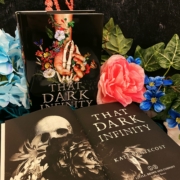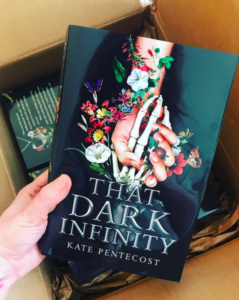Spicy Young Adult Books and Adult Readers
Writing for young adults can be a difficult world to navigate, especially if you’re writing a “spicy” or romantic/sexual young adult book.
Young adult books are more likely to be challenged or banned, as they often deal directly with subjects like love, gender identity, race, religion, and especially sex in ways that, for some, toe the line as to what is and is not “appropriate” for teens. Add in the well-known fact that a large percentage of YA readers are actually adults (often cisgender women) and writers of spicy young adult books often find themselves facing an odd question:
“Who am I writing for, exactly?” they might wonder, and “Is it possible to please two entirely different demographics reading the same material?”
What the two (main) groups of YA readers say they want from young adult books as far as sex is concerned seems to differ wildly.
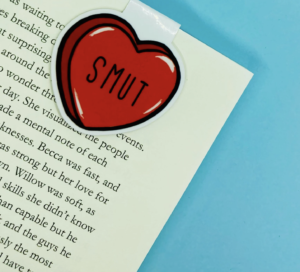
Teens (notably mostly straight teens) often complain that there’s too much of an emphasis on sex and relationships in YA novels.
“The average teenager is just not out there having sex,” says Sarah (16,) a sophomore at Harmony School of Advancement in Houston, TX. “We really don’t care that much about relationships right now. There’s just too much going on in the world. So when characters in YA novels are obsessed with things like boys and popularity and losing their virginity or whatever it just feels fake to me. I honestly skip the sex scenes whenever I get to them in books because they make me feel uncomfortable.”
By contrast, some LGBTQIA teens are happy that queer sex is being featured in books for teens.
“There were authors writing about literal incest in the nineties and it was okay because the characters were straight,” says Jupiter (16,) a student (who is nonbinary and queer) at an undisclosed high school in Austin, Texas. “Queer kids basically had to take what they could get for a long time, and just now we’re getting books where queer sex is even a thing. Queer kids just haven’t had as much exposure to [depictions of] sex as straight kids have, so personally I’m for it. ”
Both are sentiments that can be found echoed throughout the internet in circles where teens discuss literature written for them.
Adult readers are also divided into camps.

There is a significant percentage of adult YA readers who seem to enjoy sexual content in young adult novels. These adult YA readers can often be found excitedly taking to BookTok and Bookstagram to discuss the “spice levels” (here meaning the level of “onscreen” sexual activity the main characters get up to) in books like A Court of Thorns and Roses and other (often YA fantasy) books. A search for “spicy books” on Instagram or TikTok brings back thousands of hits, mostly adult readers reading and reviewing young adult books, romance novels, or erotica novels, often mixed together or not clearly labeled (which is another problem in and of itself.)
“I like the worlds created in YA fantasy,” says Victoria, a stay at home mom (38) in Wilmington, NC. “I just like a little spice! It’s not like it’s porn. I don’t see what’s wrong with spicy young adult books. Kids are having sex, whether they say they are or not, and maybe if they read about it they’ll get some of the information that their parents are uncomfortable talking about. Maybe then they can make better decisions for themselves.”
Other adult YA readers differ in opinion.
“I think it’s creepy that adult women basically colonize YA looking to read about teens having sex,” says Kenia (22,) a teacher’s assistant in Sacramento, CA. “You’re telling me they have the whole world of adult literature available to them and they choose to complain about there not being enough sex in books for teens? If they were men, online complaining about there not being enough graphic sex in kids’ books, we’d see them as a bunch of perverts. Sit down, ladies. This isn’t made for you.”
As we can see, the topic is a fraught one among both demographics enjoying young adult literature, and I’m not about to tell anyone how or what to write.
But, as an adult writing YA, where should you draw the line?
That’s something I, a lowly blogger, can’t answer for you (and keep in mind that your publisher will likely have stipulations of their own.)
I can, however, simplify it to two points of view.
- Sex positivity: We need to stop being weird about sex! So in order to dispel antiquated, harmful notions about sex and promote sex positivity, especially for LGBTQIA+ teens, (and titillate, to a degree, because it’s harmless) keep the spicy scenes in.
- Plot Necessity: We don’t need to rely on titillation! Only include sex scenes if they are necessary to the plot, fading to black unless the sex being being “onscreen” is necessary.
You, as a writer, probably fall somewhere between these two ideas, and where you fall is a matter of personal taste and artistic goals.
My recommendation?
Figure out which point of view you plan to take with your work, then make an informed decision about what kind of sex you want to include, why you want to include it, and possible repercussions you’re willing to deal with as an author. And, most importantly, regardless of the spice level of your book, make sure it’s the best possible book you can provide for your readers
(whoever they end up being.)


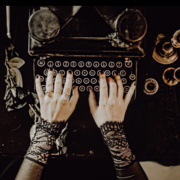
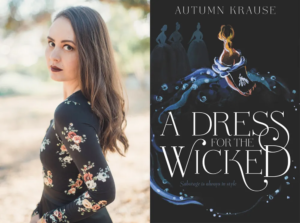


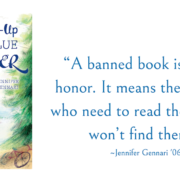
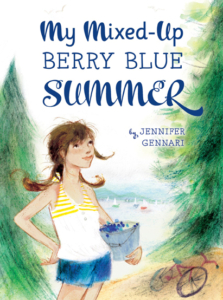 I have a few words, too, that I would remove from my debut,
I have a few words, too, that I would remove from my debut, 